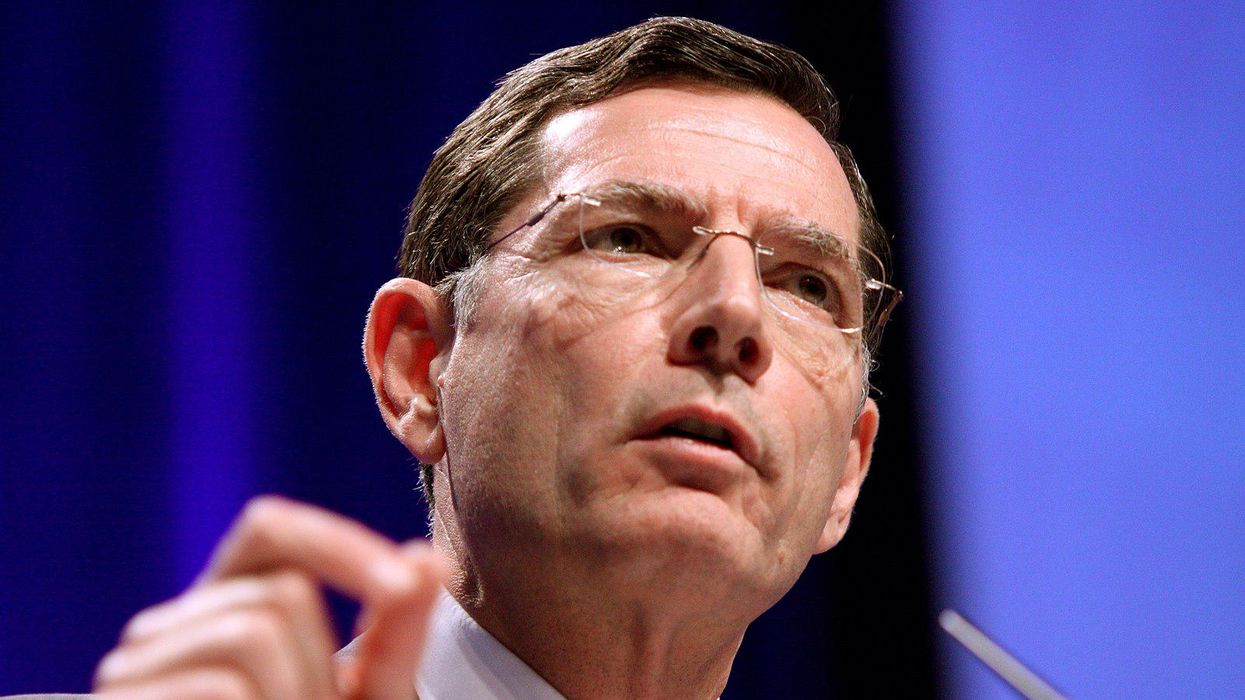How Three Dollars A Day Can Buy America A Rich Future
Reprinted with permission from DCReport
How much would you be willing to invest for a better future for yourself, today's youngsters, and beyond?
Would you be willing to invest $3 a day?
That's more than the gross upfront cost of President Joe Biden's human infrastructure bill.
Sadly, that's not how news reports describe the American Families Plan. Across the board, our major news organizations cite a big, scary, and ultimately meaningless number: $3.5 trillion.
To grasp what a huge and meaningless number that is, imagine putting matches to dollars bills. If you lit one greenback per second it would take 110,985 years to burn all that money.
Folks who make at least $100,000 per day would bear 86% of the cost of Biden's human infrastructure plan.
But the Biden plan money won't be consumed; it will be invested.
When our Air Force planes and Navy ships burn kerosene and marine diesel fuel, tax dollars used to buy that fuel are shot out as exhaust. That's tax dollars consumed.
Biden's plan adds value, making each dollar invested today worth more dollars in the future by increasing incomes, creating private-sector jobs, increasing more business profits and raising more tax dollars as the economy grows.
Human Scale v. Big, Scary Numbers
At DCReport, we try to make numbers human scale. That means we start with the big, scary, and incomprehensible $3.5 trillion gross cost and divide by 10 because the money would be spent over a decade.
Next, we divide the $350 billion per year by 332.8 million Americans as of this writing. Then we divide that by 365 days to get $2.88 per day per American ($11.52 for the iconic family of four).
And how much is $2.88? It was less than the average price of a cup of coffee in 2019. Gourmet coffee shops that year charged on average $4.24 per cup.
Most Would Pay Nothing
Now the best news: That $2.88 per day won't cost you a penny if you make less than $165,600, analysis by the Tax Policy Center shows. Years of experience have demonstrated that its computer model reliably forecasts the costs and benefits of tax policy changes.
Biden's plan would reduce federal taxes for eight out of 10 households. The poorest 48 million households would pay $620 less in taxes. That means the poorest Americans would enjoy four percent increase in their after-tax income. That's the equivalent of two extra weeks of pay each year.
Families making $91,800 to $165,600 would pay on average $120 less in federal taxes. It's not much, but also it's not a tax increase.
Now consider people on the 80th to 89th rungs of the income ladder, people who make $165,600 to $243,000 in total income. Their taxes would go up, but by just $420 on average, less than half the price of a cup of coffee.
The Richest Pay
The burden for the Biden human infrastructure plan would fall overwhelmingly on the 120,000 highest income households in America, people whose annual income ranges from $3.6 million to several billion dollars annually.
The folks who make at least $100,000 per day would bear 86 percent of the cost of Biden's human infrastructure plan. They were also the primary beneficiaries of the Trump 2017 tax cuts, repeating a quarter of the tax savings. This is more like a take back of a tax favor financed with borrowed money than a tax increase.
Yes, we have Americans whose annual incomes are in the billions of dollars. One example: Larry Ellison collects almost $1.8 billion a year in dividends from Oracle, the company he launched in 1977 with a federal government contract. And that's far from all of Ellison's income.
How the Richest Benefit
The top one in a thousand households would also reap huge benefits from the Biden human infrastructure plan, making them even wealthier over time.
The richest among us would benefit because America will be investing in a better educated, more productive workforce not burdened by student debt, which holds back the formation of families, home buying and all the spending that goes with furnishing and setting up a family domicile.
A more productive workforce with more after-tax income means most would have more money to spend on the goods and services offered by the wealthiest families and the businesses they invest in, own control. Voila, government policy that helps the many also makes the already rich richer while making the creation of new riches more likely.
How Most Americans Benefit
My life is an example of how taxpayer investments in citizens more than pay for themselves. The $8,960 that federal taxpayers invested in my college and postgraduate education over seven years under the War Orphans Educational Assistance Act has been paid back many times over in federal income taxes. Indeed, the inflation-adjusted value of that taxpayer investment in me was paid back in full just from taxes on royalties from Perfectly Legal, the first book in my award-winning trilogy on the American economy.
More broadly, one of the smartest if not the smartest federal investments ever was the GI Bill, officially the Servicemen's Readjustment Act of 1944. The GI Bill is what enabled a Seattle grocer's son named Bill Gates to become a lawyer and, in turn, give his son the money that launched Microsoft with jobs that poured money into federal coffers.
The GI Bill doubled the number of college degree holders in 10 years and resulted in more education, higher incomes, and less poverty. And this was despite the racist and sexist details of the GI Bill that kept many Black Americans and women who served from participating. The Biden plan has no such barriers, though once enacted, DCReport will scrutinize the final legislation looking for any subtle discriminatory features that Congress may slip in.
When Republicans and a handful of Democrats declare that they will vote against the American Families Plan, here is what they are really saying. You should:
- pay higher taxes
- not get as much in benefits as you could for those taxes
- pay higher prices for prescription drugs
- endure more medical bills
- have your pockets drained to pay for childcare and eldercare
Irrational Tax Hatred
And why? Because the ideological and irrational anti-tax crowd, which denounces all new taxes as bad, wants to ensure that the already best-off Americans can have more now instead of the more prosperous future we could all enjoy.
We would be a poor country today but for massive taxpayer investments in the future like the GI Bill and the related War Orphans Act. The way to think about human infrastructure is that it's not spending, like those fossil fuels consumed by military planes and ships, but an investment in a better and all-around wealthier American future.
At a gross cost of $2.88 per day, the American Families Plan is a bargain. At a net cost of less than zero, only fools would say no.












